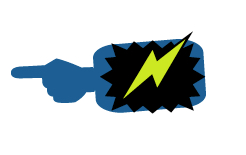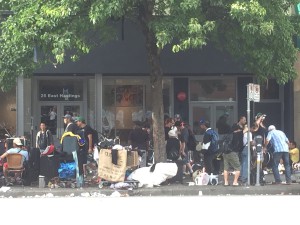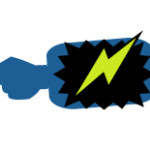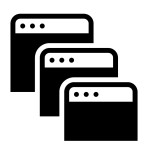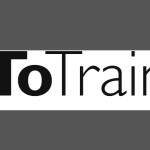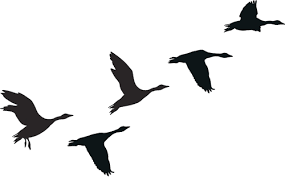Hello, my lovely blogites. It seems you are among the few recognizable lifeforms left on my computer — my computer whom I now love, hate, and mostly mourn. I had the most terrible “accident” — or maybe it was an act of God — the sort of biblical God who goes around punishing people for being too proud or too successful, eating from the Tree of Knowledge or something.
The good stuff:
It has been an amazing week, and I wanted to share it with you. The book is doing fantastically well. (Here comes the boasty part, but I don’t have to worry about being struck down by lighting because it’s already struck.) The sales rank on Amazon.com hovered between 1,000 and 2,000 for a week or two. That’s out of ALL books. I mean, all the books in the world. (They’re all for sale on Amazon, right?) Including Tolstoy and, I don’t know, Daniel Dennett and Malcolm Gladwell and… And (get this) this week The Biology of Desire got up to #13 in sales of ALL books on Amazon.ca (I’m Canadian — that’s got to count). Move over Margaret Atwood (just kidding, God. Joking…) And it was #1 in substance abuse AND neuroscience on Amazon.ca. It’s # 82 today — still in the top 100 for all books. And, okay, it’s now #2 in neuroscience. But still. AND it was selected as a best book of the month.
The tour:
The week started in New York City: three days of radio interviews. They mostly went just fine, which is one of the main reasons why the book is selling well. By the last one, NPR New York, I was on a roll. Many interviews started off with questions like “Why do you say addiction is not a disease?” There were times I felt like saying and even times when I did say “Whyever would you think it is a disease?” But mostly I behaved well and answered the questions sensibly. It was an experience: going over my own reasoning time and time again, thoroughly convincing myself that I was right.
After a quick visit to California to see family, I ended up in Vancouver. 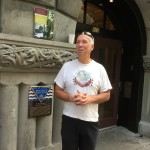 Russell Maynard is the person actively running the Portland Hotel Society, the group that established the famous INSITE supervised injection site in Vancouver’s Downtown Eastside. That and quite a few residences for the impoverished and fragile community of addicts who call these few square blocks their home. Russell took me to many of their facilities. I watched people shooting up without shame or fear….and I met a lot of caring and dedicated young people who help to make sure they stay safe. I’ll share my impressions of that strange tour in another day or two. I’ve never seen anything like it.
Russell Maynard is the person actively running the Portland Hotel Society, the group that established the famous INSITE supervised injection site in Vancouver’s Downtown Eastside. That and quite a few residences for the impoverished and fragile community of addicts who call these few square blocks their home. Russell took me to many of their facilities. I watched people shooting up without shame or fear….and I met a lot of caring and dedicated young people who help to make sure they stay safe. I’ll share my impressions of that strange tour in another day or two. I’ve never seen anything like it.
That evening, my computer had an out-of-body experience. Unfortunately it never came back. All my meticulously saved and organized files within folders within folders within folders — hundreds or thousands of articles on addiction and such, many drafts of things I’ve written or partly written, a huge collection of Firefox bookmarks, the couple of dozen passwords I’ve saved — all gone. Except for the 10% of stuff (luckily including most talks) that I backed up on Dropbox.
The guy at the data recovery store here in Toronto (I arrived on Wednesday) said he’d never seen this particular disappearing act before. But luckily, as he wrote me the next day, most of my data had been recovered. I eagerly got to the store and opened my computer, went to the folder named “Recovered Data,” and indeed there were hundreds, maybe thousands of files there. They all had names like PDF-00162.PDF or D00148.doc. Well, these seemed not very useful, but I would deal. Except that most of the files had bits of text or weird graphics or they just refused to open. My pdf files had degenerated from the latest findings in the neuroscience of addiction to stuff like this.
Have you ever seen these images? Some came with Russian or Chinese text. It was sort of like being laughed at by a coterie of drunken computer deities. Here’s your information bud: don’t lose it this time. Hah hah!
I keep thinking, the book is out, I don’t really have to keep most of this stuff…maybe it’s time to find a cave in the Himalayas and take some time off. Other times I just feel incredibly pissed off. Or stupid. Or…maybe slightly relieved.
But today is Saturday: no interviews or anything else for a couple of days. That’s a good thing. I’ll wait until Monday before I worry about what’s next.
